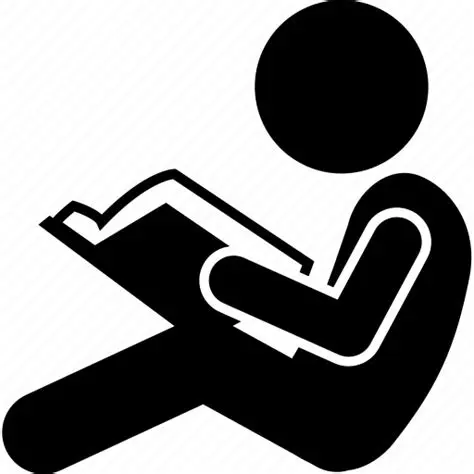By this I mean, a book you had to brace yourself to read, and you feel proud for having read. Did you enjoy the process of reading it?
Out of curiosity I tried to read the first few lines of Finnegan’s Wake. Couldn’t progress beyond that. How do people who actually read the book make any sense of it? This is not an example as stated in the post, but “most difficult book” made me think of this book immediately.
The Spirit of Democratic Capitalism… That was a chore! https://en.wikipedia.org/wiki/The_Spirit_of_Democratic_Capitalism
Glad I finished it, but as a highschool freshman I wasn’t ready for the commitment that book was.
Ulysses! The Joyce one. Honestly I enjoyed it - for how esoteric and sort of distant it is, the base plot itself is kinda mundane so it’s not like the base structure of the book is massively hard to follow (especially if you’re familiar with The Odyssey) once you get over the constant writing style shifts. It’s randomly funny and weirdly relatable (like being stuck in a conversation with a chatty American) and gives you so many reasons to hate the British. I really like how it’s adapted the story of The Odyssey and I think more adaptions of Greek works should be like it - an adaption of the themes and vague plot beats rather than just taking the characters and doing whatever the fuck you want with them, and also should have one guy who inexplicably thinks he’s actually in an adaption of a Shakespeare play instead.
I will say though, my copy of Ulysses is one third appendix, which explains out the schema and has footnotes for most of the references that will just go right over your head if you don’t happen to be James Joyce and I genuinely don’t understand how you could read that book without it. It really turns every confusing reference and story moment into something clear and understandable which elevates the text around it. If I didn’t have it I most definitely would’ve dropped the book
Also I’m nowhere near finished but I’ve started reading Dream of the Red Chamber (aka Story of the Stone) which is an 18th century Chinese novel infamous for being really long (I think it’s like over 2k pages? My copy is divided up into like five books) and difficult to follow with way too many characters in it. It’s a big long deconstruction of Confucianism and nobility following a chunk of the heavens who’s reincarnated into a failing noble family because he wants to see what it’s like being human, only to be treated like absolute shit by his family because everyone see him as a divine blessing and want to use and abuse him as much as possible for their own ends. He spends a lot of time around the women of the house and watches their own tragedies unfold, hence the length and excessive characters. Hasn’t gotten too bad yet, but I’m also barely into it relatively speaking.
I’ve read Ulysses and Infinite Jest (the latter multiple times), all of Samuel Becketts novels, and the complete works of Italo Calvino and Georges Perec.
I maintain that although the prose was much much easier, 120 Days of Sodom was the hardest to pick back up after putting down. It’s so tedious and repetitive but also about coprophagy, pedophilia and extremely detailed gore, with 0 plot or characterisation. I feel no sense of achievement for having read it and my life is worse for having done so.
Le Morte d’Arthur, by Thomas Mallory, in Middle English.
That’s impressive! Why did you read it? And did you enjoy it in some way?
I chose it for an English literature class, as I was always fascinated by Arthurian legend. The teacher thought I was mad, and was probably right. But it was more that I didn’t know what I was getting myself into.
I was adept at French, which really helped. But it was a long slow read. Looking back I don’t know how I managed other than to ignore the parts I really didn’t understand. It was pre internet hahah.
In the end, I’d say yes, I did enjoy it. It’s always stuck with me, and I automatically compare every Arthurian story (book, movie, etc) to what I remember from it - which I guess makes sense.
But ultimately it’s very sad. Almost depressing. And the dryness of it makes it feel like it could have really happened.
Damn, your question is enticing me to it up again!
- The Quantum Thief by Hannu Rajaniemi
- Vita Nostra by Sergey and Marina Dyachenko
Both are underrated or underrepresented
Seven eves. The author indulges a little too much in technical details. At points, for pages.
I thought it was very good. Stephenson does have a tendency to get really into whatever the subject matter of his story is, eg. cryptography in cryptonomicon, MMOs and gaming in REAMDE, Alan turing and AI in The Diamond Age etc. I find it to be an endearing aspect lf his writing. Definitely recommend Seveneves.
I thought it was the easiest Neal Stephenson’s book. (That I’ve read.)
I haven’t read it, but reading about it makes me think it would be this book: House of Leaves.
It’s in my reading pile! I’ll give it a try “soon”
I’ve read it. Definitely a challenge
The Brothers Karamazov by Dostoevsky. Rewarding slog but a slog for sure.
I am reading it now. Little beyond 80%. Except for the initial ~20% I found it to be a page turner. Loving it!
I liked it much better than the beginning of Crime and Punishment. It helps that I love philosophical side-quests.
It is my favorite book and the philosophical side quests are why I love it but it is a long, dense read
Probably Heart of Darkness, by Joseph Conrad. It’s so damned bleak that I had to force my way through it. It’s a great book, but I didn’t enjoy it.
I understand. I disliked every bit of it, because it was bleak and dark in a sticky way, if that makes sense. I think it’s a good book because it definitely achieve to criticize the economy of the time, but it doing it it becomes an un-enjoyable book.
We Contain Multitudes by Ed Yong is about microbes inside us and animals and I have no idea why I read it, but it was difficult to read because I’m terrible at biology. Still cool though
Edit: Oh, I didn’t realise this is the fiction comm. Oops. I guess I don’t read any challenging fiction books. Maybe I should rectify that
Anathem by Neal Stephenson is a tough book to get through, but extremely rewarding if you do.
I found Blindsight by Peter Watts to be a hard read mostly because a lot of the philosophy went right over my head. Good book though.
I loved Anathem, but the ending was a bit too much all over the place for my taste. I honestly enjoy random philosophical discussions, so the first third of the book was my bread and butter.
Stephenson is a weird author, Anathem is great, I enjoyed the Criptonomicon but really did not like Snow Crash.
Julius Caesar’s Commentarii De Bello Gallico in Latin. And… yes I did enjoy it. There are some points where translation just cannot capture Caesar’s wit. I wish I still knew enough Latin to read it again.
(Why yes I am a huge fucking nerd, how could you tell?)





